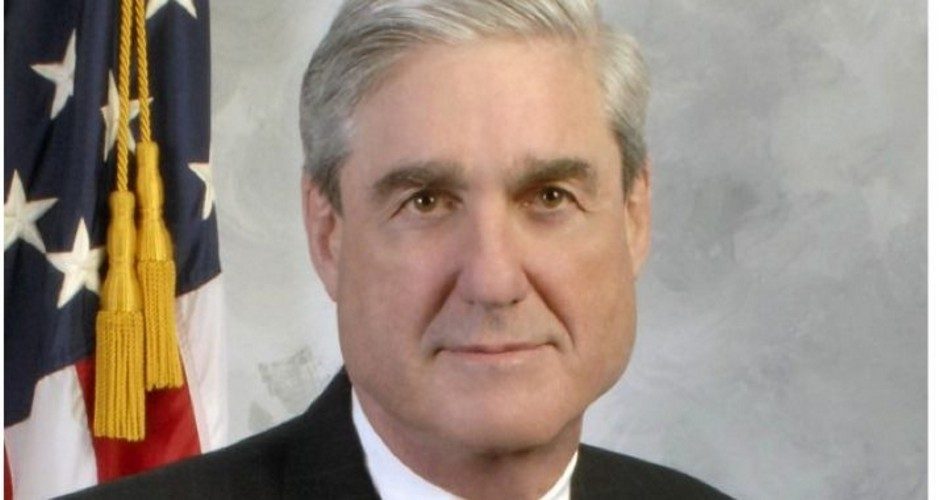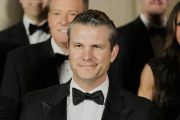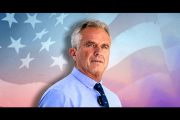
Deputy Attorney General Rod J. Rosenstein appointed a special counsel Wednesday to investigate alleged connections between Trump and Russia. The special counsel — former FBI director Robert S. Mueller III (shown) — will have free range to investigate both those alleged connections and whether Russia attempted to interfere in recent U.S. elections.
Democrats are already treating the appointment of a special counsel as if it vindicates their claims that Putin manipulated events to ensure the election of Trump — who, according to their narrative, serves as a Moscow’s proxy president. Rosenstein has made it clear that that is not the case. In a statement on the appointment of Mueller, Rosenstein said, “In my capacity as acting attorney general I determined that it is in the public interest for me to exercise my authority and appoint a special counsel to assume responsibility for this matter,” adding, “My decision is not a finding that crimes have been committed or that any prosecution is warranted. I have made no such determination.” He went on to say, “What I have determined is that based upon the unique circumstances the public interest requires me to place this investigation under the authority of a person who exercises a degree of independence from the normal chain of command.”
For his part, Mueller — who served as FBI director from 2001 to 2013 when he was succeeded by James Comey — kept his statement short and to the point. “I accept this responsibility and will discharge it to the best of my ability,” he said. He certainly has the experience. Given the degree of “independence from the normal chain of command” he will enjoy, he should have little trouble bringing the investigation to a close in relatively short order. That is, if he can avoid the political quagmire and keep his investigation narrowly focused.
The seeds for this investigation were sowed early on — even before Trump was elected. As this writer said in an article for the February 20, 2017 print version of The New American, which was later published online:
The allegations that Putin sought to influence the election in favor of Trump — who would then serve as his “puppet” — grew out of the broader allegations that Russian state-sponsored hackers were responsible for the embarrassing and damning leaks of documents and e-mails from the DNC in July of 2016. As Clinton prepared to accept the nomination from her party, WikiLeaks released nearly 20,000 e-mails from the DNC showing a clear pattern demonstrating that Clinton’s nomination was engineered by the DNC rigging the process to assure that Clinton’s name would appear on the ticket. The DNC e-mails show that there was — in the highest ranks of the DNC — a concerted effort to hurt the campaign of Senator Bernie Sanders (D-Vt.) even as he was continuing to gain steam in the primaries. Those e-mails showed — in the clear and unambiguous language conspirators use only when they feel certain that their communications are safe — that in the weeks and months leading up to the nomination, Clinton was not only the nominee-presumptive, but that the leadership of the DNC had pulled out all the stops to promote her and discredit Sanders — in direct violation of the DNC charter, which requires that it remain neutral during the primary cycle.
As a direct result of those leaked e-mails, the DNC went into damage control mode. The fallout was immediate. DNC chairperson Representative Deborah Wasserman Schultz (D-Fla.) — who was shown by several e-mail threads to be intricately involved in the DNC scheme to guarantee a Clinton nomination — was forced to resign from the chair ahead of the convention. She resisted, and capitulated only after receiving a call from President Obama.
Even as the DNC and the Clinton campaign were still reeling from the initial scandal related to WikiLeaks’ publication of those e-mails, the second wave hit. It was discovered that the e-mails also showed that at least some major donors were slated for federal appointments in a glaring example of quid pro quo. Of course, those planned appointments assumed a Clinton victory.
So in an attempt to discredit Trump, Clinton and the DNC machine began — with the help of their cohorts in the mainstream liberal media — to accuse Trump of being Putin’s “puppet.” Growing out of that, Moscow was blamed for “hacking” the DNC and leaking the e-mails and documents via WikiLeaks — which they accused of being a propaganda instrument of the Kremlin. According to Team Clinton, the reason for Moscow’s alleged interference in the election was simple: Putin wanted to assure a victory for Trump who would then serve as his agent in the Oval Office.
In the ensuing weeks and months, Trump’s enemies in politics, media, and intelligence produced one accusation after another — all backed by innuendo and speculation, but lacking one shred of evidence. The voraciousness with which they went after first candidate Trump, then President-elect Trump, and now President Trump caused this writer to liken the whole thing to a witch hunt.
Now that a special counsel has been appointed to investigate those alleged connections, President Trump — while acknowledging that he sees the allegations as illegitimate (he tweeted early this morning, “This is the single greatest witch hunt of a politician in American history!”) — has remained uncharacteristically calm and collected. Even the Washington Post reported, “One senior White House official who was present for the discussions described Trump as ‘unbelievably calm and measured.’”
That unnamed official went on to say, “I expected him to be ranting and raving, but he was like, ‘Fine, let them do what they have to do, but we’ll be focused on our agenda.” In fact, if the liberal establishment expected Trump to react by rending his garments and gnashing his teeth, they are likely very disappointed right about now. The president said that he believes “a thorough investigation will confirm what we already know — there was no collusion between my campaign and any foreign entity. I look forward to this matter concluding quickly. In the meantime, I will never stop fighting for the people and the issues that matter most to the future of our country.”
This is a developing story and The New American will keep our readers updated.




